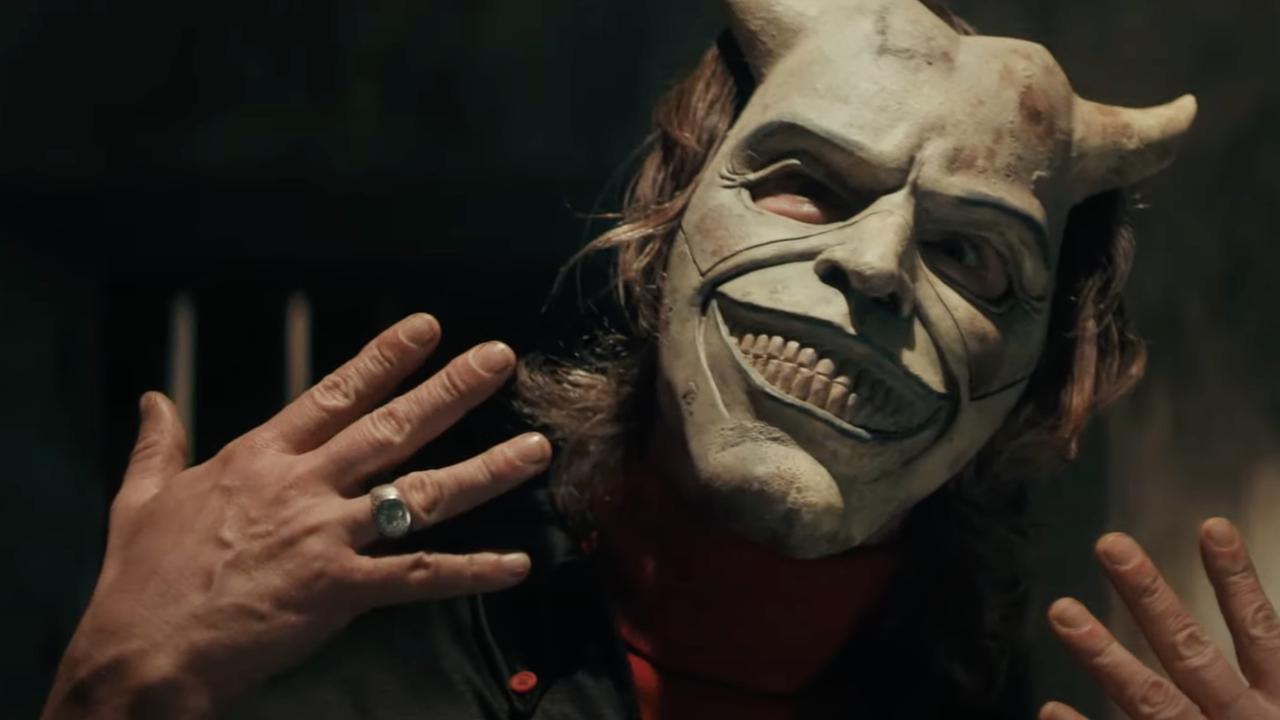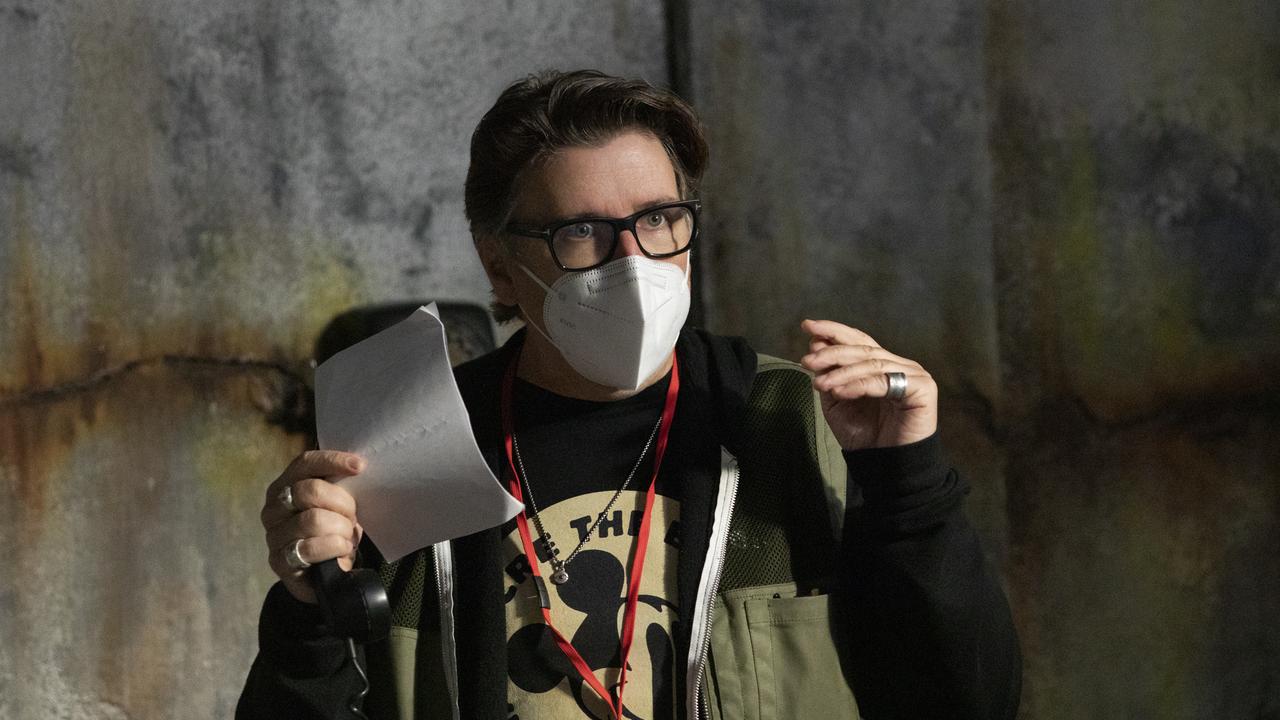Scott Derrickson confronts his childhood traumas in The Black Phone
The genesis for a terrifying new horror movie comes from a dark, personal place for its filmmaker.
If Ethan Hawke’s masked face in just released The Black Phone trailer scares you, it should.
It’s not just that the character is a molester who kidnaps and kills children, it’s that the villain of The Black Phone has its genesis in real-life horror.
Filmmaker Scott Derrickson, best known for The Exorcism of Emily Rose, Sinister and Doctor Strange, merged his own childhood experiences with Joe Hill’s short story to write The Black Phone alongside C. Robert Cargill.
“I grew up in an area of north Denver that was pretty violent, a lot of bullying, a lot of fighting, a lot of kids were bleeding all the time,” Derrickson told news.com.au. “It was also right after Ted Bundy had come through Colorado, killing people. And the Manson murders had just happened.
“When I was eight years old, my friend next door came knocking at my front door and said, ‘Somebody murdered my mum.’ The mother of my friend next door was murdered. And there was a lot of domestic violence, even in my own home and in the homes of a lot of these kids that I knew.
“Parents punished children much more aggressively, and so it was a very violent, scary kind of place to grow up in a lot of ways. And I tried to bring that environment realistically into the movie.”

Derrickson came across Hill’s story almost two decades ago, picking it up in a bookstore. He had previously optioned the rights at one point, but it wasn’t until he parted ways with the Doctor Strange sequel over creative differences that the idea for The Black Phone came back around.
He was already thinking about making a film in the vein of Francois Truffaut’s 1959 French New Wave classic 400 Blows, which introduced a 14-year-old character that functioned as Truffaut’s on-screen surrogate to explore the filmmaker’s tough childhood.
Derrickson wanted to do that for his 1970s childhood, combining that with Hill’s story about a young boy who becomes another victim of The Grabber but tries to escape with the help of the villain’s previous victims who communicate with him through a disconnected phone.
The merger of those two ideas made sense – both narratively and emotionally for Derrickson.
He had been in therapy for three years, working through the experiences of his formative years and channelling that through The Black Phone was an outlet.
“That’s why I was inclined to tell a story like this, because I felt that I had a lot of work at reckoning with aspects of my past and the impact it had on my life and who I was becoming as a person.
“It was rewarding to have a place to put back. A lot of the kids in the movie are based directly on kids that I knew.”
Derrickson had previously worked with Hawke on Sinister, a feature he and Cargill also co-wrote, and had stayed in touch with the actor – who Derrickson considers his “favourite actor I’ve worked with”.
According to Derrickson, Hawke was originally reticent when the idea was pitched, that he wasn’t that interested in playing a villain unless it was something really special.
“Then he read the script and left me a voicemail with the voice of the character, saying a line composed from the script,” Derrickson recalled. “As soon as I heard that, I was like, ‘Oh, I guess he’s going to do this.’
“I think Ethan really trusted me in what I was doing and how I was building the film. He brought a scariness and creepiness to the character that was very fresh and interesting to me.”

With several horror movies under his belt and having recently inked a production deal with Blumhouse, it’s clear Derrickson is exorcising his traumas through a genre that lends itself to that catharsis.
“That’s all it’s ever been for me as a filmmaker and as a fan and lover of the genre. It’s always been about confronting fear and facing trauma.
“The Black Phone is essentially about childhood trauma, and it really is about what that is like and what it feels like. There’s nothing in it that won’t have some familiarity to people.
“Catharsis can come from using horror to confront the spoken or unspeakable evils in our lives, in ourselves, in our families, in strangers and nature, in the world. That’s what the genre is for; it’s all about in some ways confronting and facing what is frightening and traumatic in the world.”
The Black Phone is in cinemas from January 27
Share your movies and TV obsessions | @wenleima






